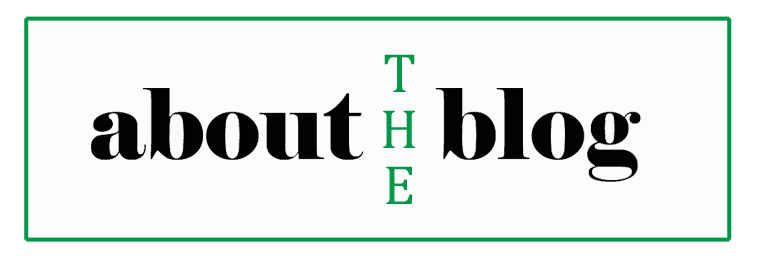
Debt Collection Supervisor Job Description: Essential Skills & Responsibilities Guide
You know what’s fascinating? While everyone else was jumping on the tech bandwagon or trying to become the next social media influencer, debt collection has been quietly creating highly-paying careers for people who aren’t afraid to roll up their sleeves and do meaningful work. And trust me, in today’s economy, where credit card debt keeps soaring, this industry isn’t going anywhere.
Now, I particularly want to focus on a group of individuals that play an integral role in this industry. I’m talking about debt collection supervisors. Who are they? What integral role do they play exactly? What is debt collection in itself? Well, tighten your seat belt because I’ll be answering all of these questions in today’s post. I’ll also shed more light on everything you need to know about the job description of debt collection supervisors. Let’s get started!

Debt Collection Supervisor Job Description
Think of this post as your comprehensive guide to understanding one of the most crucial roles in the collections industry, and it’ll prove useful to all and sundry. For instance, collection agency owners looking to hire their first supervisor or restructure their collections department will know exactly what to look out for plus minimum expectations post-hire.
Debt collectors hoping to make the step up to the supervisor role will also know what’s expected of them. They can then start taking the proactive steps to meet the needed requirements, be it obtaining a bachelor degree, acquiring technical skills, or even gaining years of relevant experience.
So, get ready as I walk you through everything you need to know about the difference between a debt collector job duties and a collections supervisors. We’ll explore the nitty-gritty details of their responsibilities, the skills that separate the good from the great, and those unwritten requirements that can make or break your collection team’s success.

What Is A Collections Supervisor?
A collections supervisor is a versatile, multi-talented individual who plays multiple roles in the debt collections dynamics. Most times, he plays the role of a strategist. At other times, he acts as a mentor, compliance officer, customer service representative, and even as a therapist for both his team and challenging clients. Unlike regular collectors, who focus on individual accounts, a collections supervisor orchestrates the entire collection process while keeping one eye on team performance and the other on regulatory compliance.
What makes them truly unique is their ability to balance multiple competing priorities. On any given day, they might jump from analyzing collection metrics and identifying trends to coaching new collectors on negotiation techniques, incentive plans, and general business administration. Meanwhile, in discharging all these duties, collections supervisors ensure every collection attempt stays within legal boundaries.
The role of a debt collection supervisor requires a rare blend of skills. They need the analytical mind of a financial professional, the leadership qualities of a team captain, and the diplomatic tact of a skilled negotiator. Effective collections managers or supervisors understand that successful collections go beyond recovering money. Rather, it’s about maintaining professional relationships, protecting your company’s reputation, and developing strategies that work for both the business and its debtors.

What Does A Collection Supervisor Do?
By now, you can probably tell that a collection supervisor’s role is multifaceted. So, let’s go into each core responsibility in detail and explore what makes each one crucial for success.
Team Leadership and Development
At the heart of a collection supervisor’s role lies the ability to build and lead high-performing teams. This involves more than just assigning accounts and monitoring call times. Instead, it’s more about creating an environment where collectors can thrive while maintaining professional standards.
To excel in this area, supervisors need exceptional interpersonal skills, including emotional intelligence, clear communication abilities, and the capacity to motivate diverse personalities. They must understand different learning styles to effectively train new collectors, recognize when team members need additional support, and know how to deliver constructive feedback that encourages growth rather than defensiveness.
Performance Management and Metrics Analysis
Collection supervisors are the data interpreters of the department. They translate numbers into actionable insights. Collection supervisors track key performance indicators (KPIs) like collection rates, average payment amounts, and call metrics. They also use this information to identify trends and optimize collection strategies.
Success in this aspect requires strong analytical skills, proficiency with collection software and reporting tools, and the ability to make data-driven decisions. Supervisors should be comfortable working with spreadsheets, creating performance dashboards, and presenting findings to upper management in clear, comprehensible ways.
Compliance Oversight and Risk Management
Supervisors serve as the first line of defense against compliance violations. They ensure compliance with laws like the Fair Debt Collection Practices Act (FDCPA) in all day-to-day collection activities, while also maintaining internal policies and procedures.
This responsibility demands strong knowledge of state and federal collection laws. Some violations are so subtle and can easily fly under the radar. Only a supervisor who knows the laws and regulations like the back of his hand and is attentive to details can catch such offenses.
To be successful, a collections supervisor must not be rigid. He must be able to quickly adapt to regulatory changes. He must also develop and implement quality assurance programs, regularly audit credit and collection calls, and maintain proper documentation of all collection activities.
Strategic Planning and Process Improvement
The most effective collection supervisors are always looking for ways to enhance their department’s efficiency and effectiveness. They identify bottlenecks in collection processes, implement new technologies, and develop strategies to improve recovery rates while maintaining positive debtor relationships.
This role requires innovative thinking, project management skills, and the ability to balance short-term collection goals with long-term strategic objectives. Supervisors should be comfortable piloting new approaches, measuring their effectiveness, and making adjustments based on results.
The world of debt collections requires skilled leaders who can balance the technical demands of the role with the human element of managing teams and working with debtors.
A successful collection supervisor isn’t just someone who can drive numbers—they’re a strategic thinker, a mentor, and a compliance expert all rolled into one. By understanding what this role entails, you can better identify the right candidate who will help your collection department thrive in today’s challenging financial landscape.
If you’re passionate about mastering the art of collections and want to connect with industry veterans who’ve been there and done that, Connection2Collections is your gateway to excellence. By joining our thriving community as an individual or company owner, you’ll have access to expert strategies from seasoned collection professionals worldwide, regular updates on industry trends and compliance requirements, and lots more.

